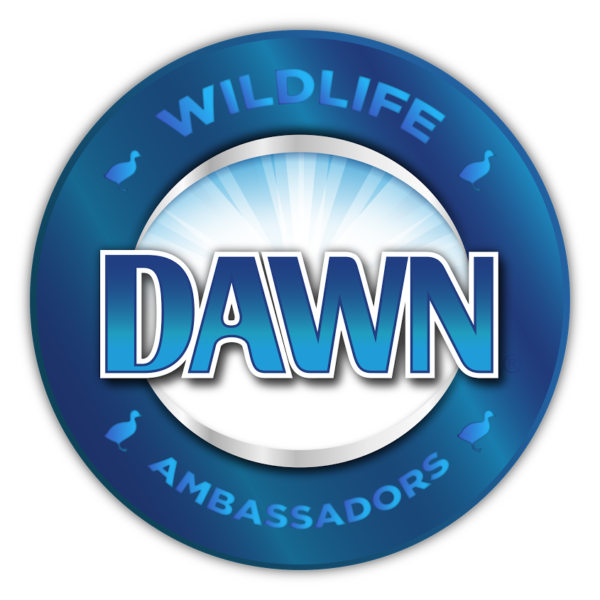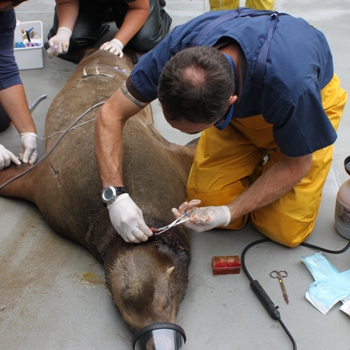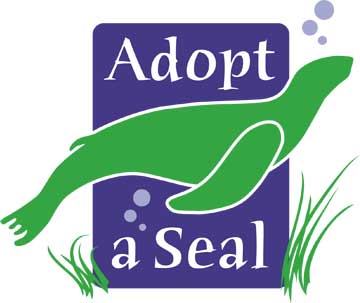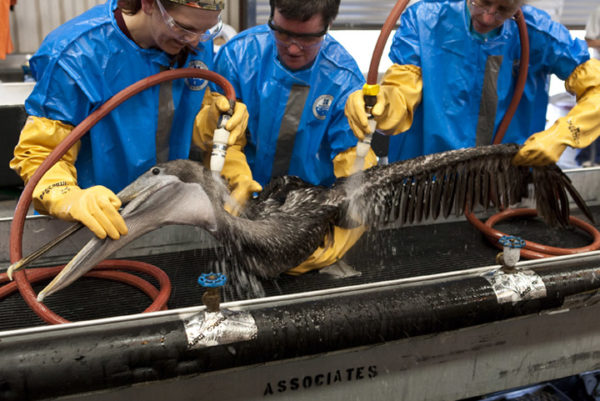 October is National Animal Safety and Protection Month and Jen is on a Journey is happy to partner with Dawn for a second time as an Ambassador to generate awareness and excitement for the Dawn Wildlife program for the next year! Believe it or not, for over 30 years Dawn dish soap has been an important part of rescuing and releasing more than 75,000 wild animals affected by oil pollution because their formula is tough on grease and gentle to delicate skin and feathers! Dawn donates thousands of bottles of dish soap to The Marine Mammal Center and International Bird Rescue to help save wildlife and it’s easy for you and your family to get involved as well, there are so many ways!
October is National Animal Safety and Protection Month and Jen is on a Journey is happy to partner with Dawn for a second time as an Ambassador to generate awareness and excitement for the Dawn Wildlife program for the next year! Believe it or not, for over 30 years Dawn dish soap has been an important part of rescuing and releasing more than 75,000 wild animals affected by oil pollution because their formula is tough on grease and gentle to delicate skin and feathers! Dawn donates thousands of bottles of dish soap to The Marine Mammal Center and International Bird Rescue to help save wildlife and it’s easy for you and your family to get involved as well, there are so many ways!
6 Simple Ways Families Can Support Animal Safety and Protection
 1. Recycle and Repurpose
1. Recycle and Repurpose
Sounds simple, sounds easy, it’s probably something you already do and have been doing for years. My kids love to help bag up our plastic bottles, cans, and paper and take it to the recycling center. $15-20 per month adds up when you’re looking to buy that pair of shoes or mountain bike. Buying items in packaging already made from recycled plastics is a double bonus. For example, Dawn dish soap bottles are made with 25% post-consumer recycled material.
But, have you thought beyond recycling and want to repurpose some of those items. Here are some ideas:
Plastics
I have athletic children who are aching or sore after sports and dance at least a few times a week! Reuse plastic bottles as ice packs. After use, wash the bottle out and fill it about halfway with water. Freeze it and keep on hand for soothing minor cuts and burns, or for keeping food cold in picnic baskets and packed lunches.
Glass
After cleaning thoroughly, some glass bottles and jars can be repurposed as candle or tea-light holders. My husband has an idea for a light fixture from our empty wine bottles, we’ll see if that comes to fruition.
Metal Cans
Instead of throwing out used metal cans, wash them out and turn them into flowerpots. My 10 year old has done this with plastic bottles, soda or vegetable cans could be unique too for child’s backyard garden.
Paper
If you have a printer at home, consider printing on both sides of each sheet. You’ll save a lot of trees—and money. My daughter always wants to print out things from the internet to color or decorate something with. This is simple and easy and even the second side of binder or graph paper gives projects a unique look!
Cardboard
Cardboard can often be repurposed as storage units, and can also be very useful if you or someone you know is moving soon. Or, build a fort! I don’t know how many times in the past 18 years that our kids have enjoyed playing with the box (especially refrigerator style) their gifts came in rather than the gift!
2. Meatless Mondays
As we burn fossil fuels like coal, oil and natural gas, we release carbon dioxide into the atmosphere. The carbon dioxide acts like a heat trapping blanket warming the air, land and sea. As carbon dioxide is taken up into the ocean, it is also creating a more acidic environment for the ocean life. This warmer and more acidic ocean is making it harder for marine mammals to catch their food! To prevent the oceans from becoming too warm and acidic, we need to reduce our use of fossil fuels. One way we can do this simply at home is Meatless Mondays! The production of red meat and dairy are responsible for a large amount of carbon dioxide and methane emissions. Can you believe that switching to just one vegetarian meal a week is the same as driving over 1,100 miles less each year!
 3. Support Sustainable Seafood
3. Support Sustainable Seafood
Marine mammals and people both heavily rely on seafood. Unfortunately, over-fishing certain populations and harmful fishing methods have caused dramatic declines in many fish species and habitats. While there are many harmful methods, there are also fishing methods that allow us to catch only what we want and ensure plenty of fish in the sea and on our plates!
- Use the Monterey Bay Aquarium Seafood Watch guides or free app to identify what sustainable options are available.
- Always ask where and how the fish was caught to learn more about if it is sustainable!
- Support local businesses and restaurants that have committed to only serving sustainable seafood.

© Geno DeRango – The Marine Mammal Center
4. Reduce Ocean Trash
Our oceans have accumulated a great deal of plastic and other trash, and it poses a major health risk for marine life. Marine mammals, and other marine life, can become entangled in trash or ingest trash by mistake. 80% of the trash in the ocean comes from land-based sources, so we can take action on land to help prevent trash from entering our waterways!
- 90% of ocean trash is plastic, so every action we can take to reduce plastic makes a huge difference! Find alternatives like reusable water bottles and bags rather than plastic.
- Avoid releasing balloons into the sky as they often end up in bodies of water and can trap animals and will break down into tiny bits of trash that can be consumed by fish.
- Say no to plastic straws! Since plastic lasts forever, if you don’t need to use it, just say “no straw please”.
- If purchasing beverages attached with “six pack” plastic rings, or boxes with large packing straps, cut the rings apart before throwing them away. Birds, fish and small land animals can get caught in the rings.
 5. Adopt an Animal
5. Adopt an Animal
Due to allergies and mainly our daily schedules, we’re unable to own a pet much to the kid’s chagrin. We’ve discussed many times about animal adoption, or ‘symbolic’ adoption. Whether it be a seal, sea lion, sea otter, or aquatic bird, symbolic adoptions are a meaningful way to honor loved ones on special occasions, help support an ailing animal, or just to show that you care. The International Bird Rescue (IBR) has bird adoptions of ducklings, pelicans, heron, loons, or murres that begin from $10. Your donation can help IBR’s work on behalf of aquatic birds worldwide. The Marine Mammal Center’s Adopt-a-Seal® program (starting at $30) helps buy fish and medicine for current and future patients and donations fund research into marine mammal diseases as well as help educate the public about the importance of marine mammals and ocean health.
 6. Volunteer
6. Volunteer
If you have the passion and the extra time, adults/students 18 and older can volunteer as well as apply for externships/interships for the IBR or Marine Mammal Center, there are many locations in California and Hawaii. Kids under 18, school groups, Girl/Boy Scouts and other youth can create a fundraising page. Whether you want to celebrate your birthday, a holiday, your wedding, or get sponsorship for a challenge or start an awareness campaign, creating your own Marine Mammal Center fundraising page and sharing it with your friends and family is a fantastic way to help support our mission throughout the year.
For more information, visit Dawn Saves Wildlife and follow their Facebook and Twitter.
Information provided by my partnership with the Dawn Wildlife Ambassadorship. All opinions my own.


















